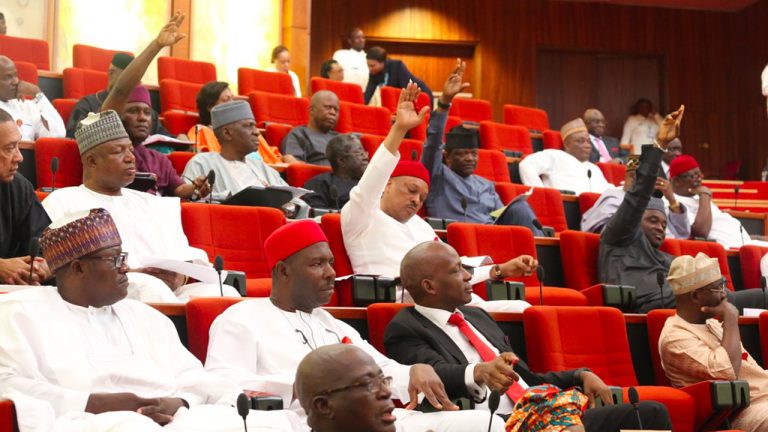The Nigerian Senate on Thursday passed for second reading President Bola Tinubu’s controversial Tax Reform Bills, aimed at overhauling the country’s tax administration system.
These Bill Includes: ‘An Act to Establish the Joint Revenue Board, the Tax Appeal Tribunal and the Office of the Tax Ombudsman, for the harmonisation, coordination and settlement of disputes arising from revenue administration in Nigeria and for other related matters, 2024.
‘An Act to Repeal the Federal Inland Revenue Service (Establishment) Act, No. 13, 2007 and enact the Nigeria Revenue Service (Establishment) Act to Establish the Nigeria Revenue Service, charged with powers of assessment, collection of, and accounting for revenue accruable to the Government of the Federation, and for related Matters, 2024.
‘A Bill for an Act to Provide for the assessment, collection of, and accounting for revenue accruing to the Federation, Federal, States and Local Government; prescribe the powers and funtions of tax authorities, and for related matters, 2024.
‘An Act to Repeal certain Acts on taxation and consolidate the l;egal frameworks relating to taxation and enact the Nigeria Tax Act to provide for taxation of income, transactions and instruments, and for related matters.
While Senate Majority Leader Bamidele Opeyemi touted the reforms as a positive shift for Nigeria’s tax system, Senator Ali Ndume raised concerns, arguing the reforms contradict certain constitutional provisions.
Ndume also pointed out the opposition to the bills by the Nigerian Governors’ Forum, the National Executive Council, and traditional rulers, suggesting that due process had not been followed.
Despite these objections, Senate President Godswill Akpabio, after hearing debates from both sides, put the bills to a voice vote, passing them for second reading.



